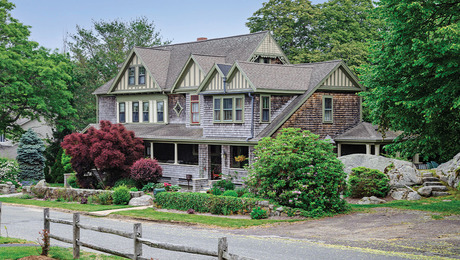*
Messi,
Your term “the joints” can mean several different things, each of which would require a glue with different characteristics.
For example, if you made the top by edge-gluing teak boards, the resorcinol would give the strongest joint. For apron to leg joints, mortise and tenon, either the epoxy or the Gorilla Glue would suffice. The GG is excellent for these joints because it fills any voids with closed cell foam (denies access to water) and because its flexibility allows some cross grain movement without destroying the bond. Teak is just dense enough that the WEST System cannot exceed the strength of the wood. This has to do with the saturation potential, not the resin’s own strength properties. Resorcinol is the strongest bond. I saw an article in Wooden Boat about a waterproof PVA glue used by an old salt who had become sensitized to epoxy. Sorry, do not recall more. Think it was British. Acetone wash is a must, whichever glue you use. Good luck!
Bill















Replies
*
I'm in the process of making a teak table that will probably spend most of the warm months outside. The question is.....what can I glue the joints with? I'm concerned that nothing will stick to this greasy wood. Any imput would be a great help
*b TVMDCIt depends on how much effort you want to put into the glueing process. Gorilla Glue works great for me on Cocobolo though I haven't used it on teak.It you want a super strength, long lasting glue designed for marine use, try Smith and Co. Tropical Hardwood Epoxy. About $32 (Cash B4 Dely) for a 2 pint kit direct from Smith. 1-800-234-0330.If you want to buy with plastic, check out rotdoctor.com, who sells the epoxy for $44.76 for the 2-pint kit.Post a pic when you're done.
*...i used west system epoxy to glue these laminated teak handrails up 5 years agosee Jamestown Distributors @ http://www.jamestowndistributors.coma quart is $24 pint of hardner $12 and the set of mixing pumps is $8
*Ditto W.E.S.T. System Epoxy. I used it for years during professional boatbuilding. Its thin, so it has the ability to do a better job of saturating wood fibers, at least near the surface.I suggest you slightly abrade the faying surfaces with 100-grit sandpaper. Then, just before applying glue, wash them thoroughly with acetone, to remove teak's natural oils. The acetone will dry almost immediately. Apply the glue to each surface and clamp, but don't use excessive clamping pressure. Epoxy is a good, flexible gap filler.
*I'd go with the West system though i think You should be able to do better on the prices. You don't need the pumps, it mixes 5 to 1, but if you decide to use it on other projects it would be worth it. Don't use standard polyester resin like you would for fiberglass. You may find a lot of projects that you can use West system on. Skip
*b TVMDCMessi, West is an excellent system. I would recommend you read their catalogue for a great How-To using their products including "Wetting-Out" which is coating the surfaces with epoxy and allowing the wood to absorb the epoxy. Then you reapply epoxy which bonds to the curing/cured epoxy for a pretty indestructible bond.You can try pyacht.com for West products: The 105 resin is $22.45/Qt, #205 Fast Hardener is $11.05/0.44Pt. You may want to consider the Colloidal Silica filler if your joints are rough since it acts as a gap-filler: $5.85/1.9 Oz.Good luck!
*Somewhat related, can you stean-bend teak? I have a swim platform on my boat that the local beaver took a likeing to untill indigestion from all that rich imported wood convinced him to chew on 200 year old cottonwood trees instead. He didn't eat all of it just the first layer of a curved (2 direction) platform.
*I've done some yacht carpentry as aprt of my custom cabinetmaking business and have used the West Systems epoxy with success. I'd also recommend Recorcinal glue from Dap. In below water-line marine applications recorcinal is recommended. Recorcinal is a two-part resin (I think it's a resin)liquid and powder that mixes to a dark brown that blends extremly well with teak.
*Messi,Your term "the joints" can mean several different things, each of which would require a glue with different characteristics.For example, if you made the top by edge-gluing teak boards, the resorcinol would give the strongest joint. For apron to leg joints, mortise and tenon, either the epoxy or the Gorilla Glue would suffice. The GG is excellent for these joints because it fills any voids with closed cell foam (denies access to water) and because its flexibility allows some cross grain movement without destroying the bond. Teak is just dense enough that the WEST System cannot exceed the strength of the wood. This has to do with the saturation potential, not the resin's own strength properties. Resorcinol is the strongest bond. I saw an article in Wooden Boat about a waterproof PVA glue used by an old salt who had become sensitized to epoxy. Sorry, do not recall more. Think it was British. Acetone wash is a must, whichever glue you use. Good luck!Bill